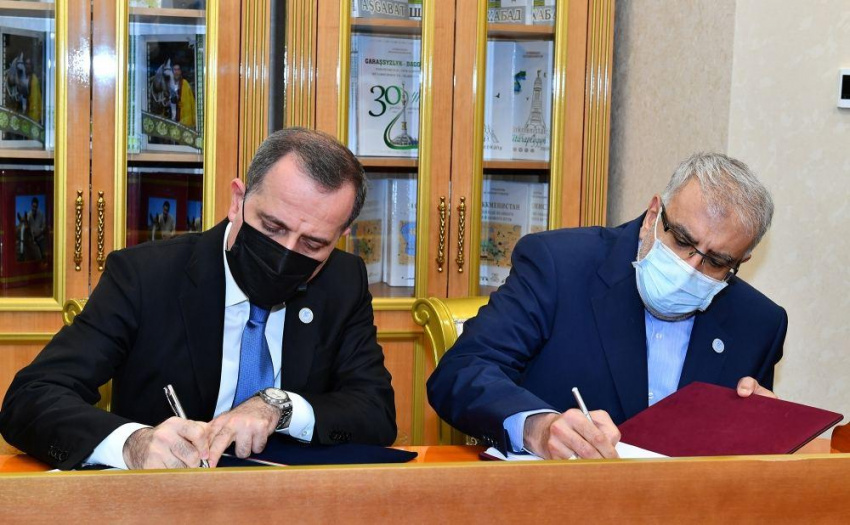The main International results of the new Iran-Turkmanistan-Azerbaijan gas deal
By Mohammad Mikaeil Abedi, University of Marmara, International Relations and Political Science

On Sunday this week, the Iranian medias reported that Iran, Azerbaijan and Turkmenistan have officially signed a new gas deal in the recent ECO summit.
According to this new deal, which was signed by the oil ministers of Iran and Azerbaijan, the Turkmens would be able to supply their natural gas all the way to Azerbaijan via Iranian soil. The three states have agreed that this pipeline will start working in about a month. Also, the Iranians would be able to take the amount of gas they need for five of their provinces as transit fee.
Although, just like any other gas swap deal, this event is beneficial for the three states, but this new pact will have two remarkable political impact on the region as well.
- Iran gains a new leverage against Azerbaijan.
“Iran will be wiped out of the map “, said Azerbaijani MP Qudret Hesenquliyev on 30 December 2016, in a speech with the Turkish “Yeni Shafak “news agency.
According to many, the phrase “Wipe out “could mean that Azerbaijan would like to ignore Iran in any possible transit agreement. The republic of Azerbaijan has already tried to do such a thing, by attempting to invade the Iran-Armenia border and cut the access of Iranians to Russia and Europe. An attempt which failed, as the Iran`s military immediately sent its forces to the border, while many Iranian high-ranking officials, including President Ebrahim Raisi, stated that Tehran would never accept any change in the international borders. On the other hand, the actions that Baku took, not only did not “wipe out” Iran out of the map, but eventually replaced Azerbaijan with Armenia in the International North-South corridor, literally wiping out itself.
More than five years after Qudret Hesenquliyev`s words, it appears that Azerbaijan has realized that bypassing Iran is not as easy as they think. The “Trans-Caspian Gas Pipeline”, which had supposed to swap the Turkmen gas to Azerbaijan by an undersea pipeline, has been facing the heavy oppositions of Iran and Russia since previous years. Thus, the Azeris were forced to use another alternative route to reach the eastern coasts of the Caspian. With this happening, Azerbaijan would be more depended on Iran, since it is apparently the only way to get the gas from Turkmenistan. As a result, the Islamic Republic would have a new leverage that it can use against Baku, a neighbor that haven’t had excellent ties with Iran in the past 30 years.
- The augment of Iranian role in ECO and the region

